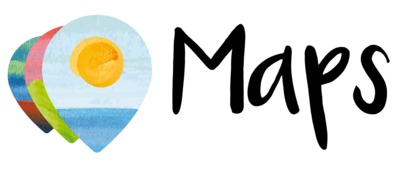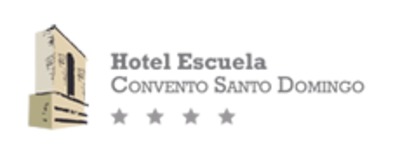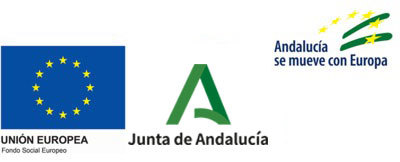
Tips for and eco-tourist
We all want to change the world and make it a place where we can enjoy everything that life has to offer to the full. However, it is not enough to wait for governments, institutions and environmental organisations to take measures, promote projects and make demands.
Our actions as “isolated” individuals also have an environmental impact, so it is vital that citizens and visitors alike should know and take on board the kind of behaviour to follow in order to achieve a healthier environment. This is true whatever our destination, but is especially important when we are in the rural environment, which is much more sensitive to human intervention.
As a responsible person, don’t forget the three “R”s: any time and any place you can Reduce, Re-use and Recycle.
Transport
- Drive efficiently and try to maintain a moderate speed on the roads. On mountain roads, not only should you drive calmly for your own safety, but also to avoid hitting wildlife. On tracks you should not drive at more than 40 km/h, except where otherwise indicated.
- Leave your vehicle at the entrance to small villages. You are bound to enjoy the visit more on foot and you will not block the narrow streets.
- Andalusia has the largest number of petrol stations offering biodiesel in Spain. If you use this biofuel you will be contributing to reducing greenhouse gas emissions. You can get a list by province at the website of the Ministry of Industry, Tourism and Trade (Spanish).
- Wherever possible, try to combine journeys on foot or by bike with the use of public transport, thereby reducing CO2 emissions. Every kilometre you travel on public transport uses up to 6 times less fuel than a conventional car.
- By planning your journeys you can often optimise your energy consumption. For example, planning a journey on the most suitable route (shortest, least busy, best time of day…) you can avoid major loss of time and fuel.
Water Consumption
- Try to close taps well after use. A drip per second is equivalent to 30 litres of wasted water each day, something this Region cannot afford.
- Close taps to soap yourself and use no more than the amount of soap required; this reduces rinsing time and makes subsequent purification of the water easier.
- Close the tap while doing other things such as brushing your teeth or shaving. Using a glass for rinsing you can save up to 90% of water used for washing.
- Do not use the WC as a waste bin; nor should you flush unnecessarily. If it has a dual flush mechanism, always use the appropriate option.
- Have showers instead of baths. Water consumption for a shower is usually 5-6 times less than that of a bath.
- Do not throw rubbish into rivers or streams. If you are showering at the swimming pool, make sure you turn off the shower before getting into the water.
- Collaborate with the tourism establishment you are at, and follow its recommendations to help reduce water consumption.
Waste
- More than 65% of the waste we generate is recoverable or recyclable, so it is highly important to recycle waste.
- Use the recycling containers to be found at the establishment or in the town/village where you are. Always use the waste bins in your room and in communal areas of the hotel establishment.
- Do your shopping with a bag made out of cloth or another re-usable material and reject plastic bags and unnecessary packaging offered in shops. This will help to reduce waste generated.
- Use as little tin foil, cling wrap and packaging as possible when wrapping items. Use re-useable plastic containers to store food and, where possible, buy items by weight or in large packets.
- Do not through waste that is potentially hazardous to the environment (alkaline or watch batteries, cleaning products, medicines, etc.) in the bin. Use the specific containers to be found at your hotel establishment or in the town/village where you are staying.
- Avoid using disposable products. Returnable packaging is preferable.
- Always choose glass packaging above metal, and paper wrapping above plastic where possible.
- Use rechargeable batteries.
- Use natural fabrics, they pollute less and are easier to recycle.
- When you go to the countryside, take a bag for rubbish and then place it in a container; leave no trace of your visit behind you.
Noise
- Make sure your vehicle is correctly soundproofed, in line with current legislation. When driving, avoid sudden acceleration causing unnecessary noise, especially if driving a motorcycle, moped or quad bike.
- Avoid shouting and having loud conversations in places such as restaurants, cafés and other public places.
- Do not use your car stereo at high volume, especially if your windows are open, driving through villages or the countryside.
- Try to keep the volume down on your music system and television when in your hotel establishment, as you may be hindering others’ rest and relaxation.
- If you are in the countryside, avoid any noise that could disturb the peace of animals.
- Always respect others’ right to rest.
Consumption
- Contribute to strengthening organic agriculture in the country and villages by consuming seasonal, local produce. This will benefit the environment and contribute to higher-quality foods, free from the chemical substances associated with conventional agriculture, and you will also help provide a living to local residents. If you can, look for products with the European Union’s organic produce eco-label.
- If possible, choose products whose packaging has the “recycle” label. This will help to reduce the impact of waste generated.
- If a shop has a deposit-return system for packaging (glass bottles, boxes of vegetables, etc.), use this to avoid generating unnecessary waste.
- When buying foods, opt for those in glass and paper packaging rather than metal and plastic. Wherever possible, avoid small amounts and chose large packets as they are cheaper and imply less energy consumption and waste treatment for packaging.
- Make sure that any sprays you buy have the “ozone-friendly” mark to avoid damaging this vital layer of the atmosphere.
- If possible, buy crafts in the villages you visit. Not only will you be purchasing an example of traditional art, but you will also help to strengthen initiatives that maintain local culture.
- For the same reason you should try the typical cuisine of the villages you visit. Besides sampling these exquisite dishes, a display of traditional culture, you will be helping to maintain the local economy.
- Eat more vegetables. Not only is it healthy to eat a balanced diet, but meat production generates more CO2 and methane emissions, as well as requiring a large amount of water.
- Pay attention to the labels and certificates of products or services you purchase. Certifications such as the Nature Reserve Mark (Marca Parque Natural), ISO 14000 and ISO 9000, EMAS or the Certified Quality Certificate (Marca Calidad Certificada) provide guarantees regarding quality and environmental impact.
- If you buy wooden items, try to ensure that the wood comes from sustainable forests. They may be marked with the FSC or PEFC label.
- You will find a great deal of tourism information about Andalusia on the Internet. Do not waste paper; only print what you really need, or use other media (mp3, PDA, GPS...) to store relevant information for your trip.
Tourist visits
- Try not to touch or damage items of art or valuable natural resources. A hand touching a sculpture, tapestry or painting combines with thousands more to produce irreversible damage. Sometimes, direct contact with the countryside, flora and fauna can cause major changes.
- When visiting churches and other religious centres, respect the local population’s times of worship. Avoid taking photographs inside, except with express permission, and speak quietly at all times.
- Avoid the temptation of taking some piece of art as a souvenir, such as a piece of mosaic. Remember that this action, which alone damages the integrity of the heritage in question, can be highly damaging if practised by other visitors as well.
- Do not join the trend of leaving a record of your visit by signing your name on natural or cultural heritage such as rocks, trees, walls, etc. You will be making the experience irreversibly less enjoyable for other visitors, besides damaging our heritage.
- Avoid annoying noise when walking in the streets, visiting monuments, etc. Respect sleeping times and the rhythm of life of the local population, which often does not coincide with visitors’ leisure time.
- If you have the chance to attend a local fiesta or traditional festival, respect the feelings of the local people, even if you do not share their beliefs and traditional ceremonies.
- Enjoy visits to farmland and rural areas, but do not walk across fields or take fruit without the owner’s permission. In protected nature areas you should also respect regulations and follow signed instructions.
- Try not to take part in active tourism that is aggressive to the environment. Get information on activities permitted at visitor centres and information points, along with regulated areas and dates.
- Do not remove anything (animals, plants, fossils, minerals, etc.), whether as souvenirs or for collections. When these actions are multiplied by numerous visitors they can cause serious problems for the integrity of ecosystems in the area, especially when they affect protected or endangered species. If you want a souvenir, take a photo.
- When doing routes on foot or by bike, follow the indications of the guide. If you are travelling alone, keep to marked tracks and trails, and obey any signs along them.
- Mediterranean forest is highly susceptible to fire, especially in summer. Therefore it is important not to make fires or to smoke in forest areas. Remember that in designated Nature Reserves you can only light fires in specific authorised locations during certain months.
- Avoid actions that could have a negative effect on farms, domestic animals or infrastructure (fences and cattle gates), and respect the original use of cattle trails, letting animals pass and closing gates.




